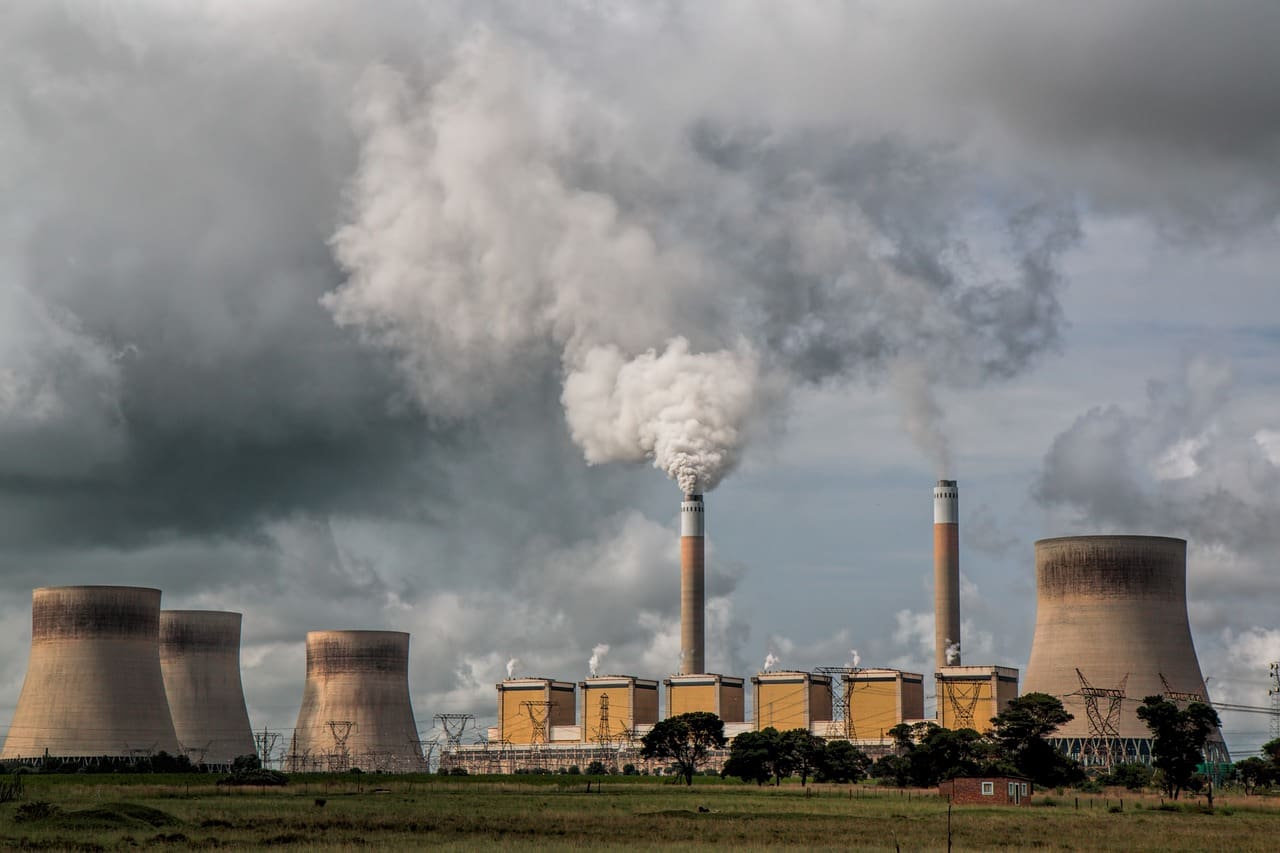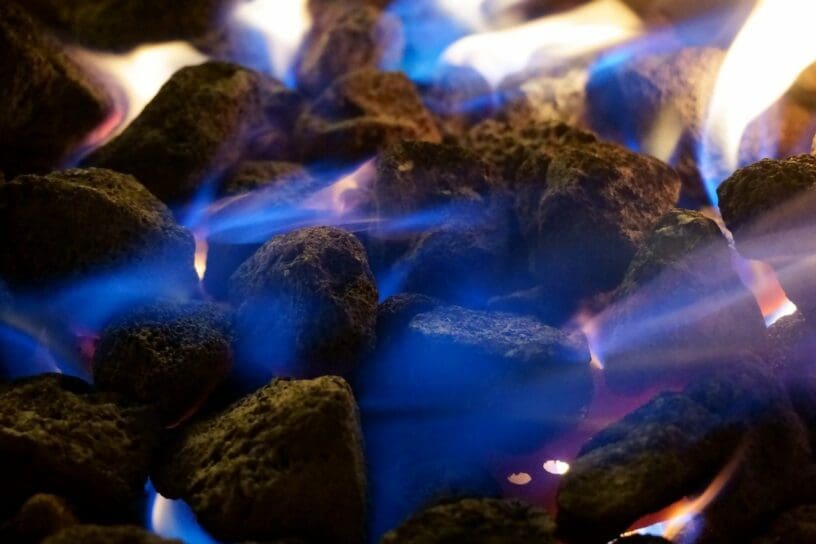20 Facts about Fossil Fuels That You Need To Know
The modern world’s developments today have been heavily dependent on fossil fuels which help in generating energy used in industries for production. These fuels, including coal, oils, and natural gas are responsible for producing energy used in powering vehicles, lighting homes, and running food production companies which are essential for human existence. However, these fuels can also have devastating consequences when not used in the best way. The emissions resulting from burning these fossil fuels have been linked to environmental degradation and global warming. Therefore it is paramount for us to learn and understand these helpful, yet deadly sources of energy to put them to good use and minimize their risks.
Fossil fuels are products of ancient remnants of living things including plants and animals that have gone through geological changes to become helpful fuels. The process that has taken millions of years has been instrumental in forming the fuels that have been key in the twenty-first century. This article delves into some of the most fascinating facts about fossil fuels that we all need to know. Their historical significance and effects on the environment can be driving forces to guide humans on how to use fossil fuels without causing damage to the global environment.
These are some of the best 20 facts to know about fossil fuels:
1. All Fossil Fuels are formed Through Geological Processes
Have you ever wondered how fossil fuels are formed? Coal, natural gas, and oil as formed as a result of the decomposition of plants and animals. The process takes place gradually, for millions of years. The plants and animals that existed millions of years ago were buried and changed slowly due to pressure and high temperatures underground. The most recent discovery of oil in Alaska illustrates that fossil fuels are formed underwater. Scientists concluded that the ice must have covered a sea that was in the place millions of years ago before freeing it to become ice.
2. Coal, Natural Gas, and Oil are the most Common Fossil Fuels
Fossil fuels including coal, natural gas, and oil are the biggest sources of energy across the world. Statistically, more than eighty percent of energy consumed across the world is generated from the three fossil fuels. This leaves less than twenty percent of energy produced through other means such as wind energy, geothermal energy, biomass energy, tidal energy, and hydro energy. These numbers show just how important fossil fuels are to human existence because we depend on energy in every sector of life.
3. Fossil Fuels are Nonrenewable Sources of Energy

Image by Steve Buissinne from Pixabay
One reason why fuel is expensive is that fossil fuels are scarce across the world. In addition, they are not renewable sources of energy which means that they would be depleted at some point in life. Since the discovery of oil is at a lower rate compared to the rate of consumption, it is estimated that the world will run out of fossil fuels in the next hundred to two hundred and fifty years. This puts us at a risk of having few sources of sustainable energy to run the growing industries in the world.
4. Processing Fossil Fuels is Cheaper compared to other energy production
One surprising fact is that mining and processing fossil fuels is quite cheap when compared to other energy production methods. Renewable energy sources require heavy investment in equipment and raw materials to produce a small amount of energy. This makes fossil fuels the most ideal target to produce energy even though they are not renewable. However, the cost of converting these fuels to energy is relatively higher in the long run because of the resulting environmental effects. In the end, it is less costly to generate energy from fossil fuels.
5. The Quality of Coal is Dependent on the amount of Carbon
There are different types of coal but the best of them all is anthracite which has more than ninety percent carbon. The higher the amount of carbon, the better the substance and the higher the amount of energy it produces. However, the best coal also takes the longest time to produce. Anthracite takes a minimum of three hundred million years to produce making it one of the rarest fossil fuels on the planet. However, researchers mention that the available coal can last for more than a thousand years if the consumption does not increase by a fraction.
6. Coal, Oil, and Natural Gas are Made up of Hydrocarbons

Image by Gábor Adonyi from Pixabay
Have you ever wondered how fossil fuels store and produce enough energy to serve the whole world? The energy is stored in the form of atomic bonds in the hydrocarbons. However, the energy is inert unless converted through a chemical process. The energy in the binds is released when the fossil fuels are subjected to fire to weaken the atomic bonds. Although the process is simple, the energy produced can run industries.
7. Searching for Oil Requires Careful Examination of Different Types of Rocks
The process of prospecting for oil seems like a less complicated process because it only requires scientists to examine the sample of rocks from underground. The rock’s strata levels are examined to determine whether there has been plant and animal decomposition in the region. If the decomposition of plants and animals is detected, a conclusion is made that there is crude oil from the place where the rock was removed.
8. Coal as a Fossil Fuel is a Black Rock
It is easy to identify coal because of its black color making it distinct from other types of rocks on and beneath the earth’s surface. The rocks containing coal are formed under the surface forming veins that run to the main rock. The veins make it easier for the miners to drill through as they search for the main rock. Besides, coal is softer than other ordinary rocks which makes it easier for miners to navigate through the veins.
9. Fossil Fuels Can Emit Toxic Substances that are Harmful to the Environment

Image by Denny Franzkowiak from Pixabay
Even though fossil fuels are important to human life, they have the potential to cause harm to all living things on the earth’s surface. While combustion is a simple process to produce energy, it also leads to emitting of toxic gases in the atmosphere. The substances emitted have the potential to cause heart disease in people living within the environment. They also cause respiratory diseases, stroke, asthma, and early death among other effects on human life. Therefore it is important to manage the emitting of these gases in the atmosphere.
10. Fossil Fuels are Linked to Global Warming
The production and consumption of fossil fuels is the major contributor to global environmental issues. The emission of the byproducts has led to global warming, the creation of acid rain, air pollution, and water pollution. Therefore, fossil fuels have made a major difference in the modern world in both negative and positive ways. Efforts to embrace renewable sources of energy have been put in place to reduce excessive usage of fossil fuels.
11. Fossil Fuels are used to make a wide range of Products across the Globe
Fossil fuels can be used to make energy used in different sectors of the world. The most common use of coal is generating electricity which is used in every country across the world. Another fossil fuel like oil is used to make burning products such as gasoline which is used in heating and the transportation industry making oil an indispensable product in the entire world. Lastly, natural gas produces a lot of energy when exposed to high temperatures thus used in heating. This variety of uses of different fossil fuels shows that at least everyone across the world has used energy produced by these products.
12. It is used in Manufacturing Plastics on a Large Scale

Image by Tomáš Sova from Pixabay
While the most common use of fossil fuel is producing energy, there are other uses such as manufacturing plastics. Plastic materials are made from the byproduct of fossil fuels such as oil. Plastic water bottles are manufactured by the use of oil or coal which are mined from the earth’s surface and modified through industrial processes to make plastic.
13. Fossil Fuels are the Oldest Products that exist on Earth Today
Fossil fuels are extremely old because they take a long time to develop into usable products. According to scientists, it takes millions of years for organic matter from animals and plants to transform into fossil fuels. The process needs a lot of heat which is underneath the earth’s surface as well as a lot of pressure. Realistically, the fossil fuels that we use today started forming millions of years ago, before the age of dinosaurs. If we backdate properly, these fossil fuels began forming during the Carboniferous period.
14. Different Fossil Fuels Possess Different Characteristics
There are several varieties of coal and the favorite is anthracite which has the highest carbon percentage. This type of coal took the longest period to develop and required more pressure than other types of coal ever discovered. Scientific research states that the higher the amount of pressure applied to the organic matter, the higher the amount of carbon concentration in coal. This makes the substance have the highest amount of energy when burned producing huge amounts of energy.
15. The Fossil Fuel Natural Gas is Colorless and Tasteless
Just like other characteristics of gases, natural gas is colorless and tasteless. However, scientists discovered the easiest way to detect the presence of the gas by using mercaptan or odorants. These chemicals are added to the natural gas to create an artificial gas smell that helps detect gas leaks. The gas smells like Sulphur which makes it easier to know the presence of natural gas in the environment.
16. Fossil Fuels can Destroy Marine life when Extraction is Done in the Sea
Although there are more fossil fuels in the seas than on land, extraction from these places can lead to the destruction of marine life. In the places where there is oil, the emission of gases from oil and exposing oil tanks can intoxicate the water bodies. These substances cause depletion of oxygen levels in the seas thus leading to the death of marine animals.
17. Burning Fossil Fuels Uncontrollably Cause a Range of Health Effects

Image by Jan Van Bizar from Pixabay
Although fossil fuels help us generate energy, their side effects on human life are devastating. First, the emissions in the air cause respiratory issues such as asthma, and bronchitis. These fuels have also been linked to the increased rate of lung cancer, and heart diseases which have led to increased mortality in the world. People born in a place where fossil fuels emit gases are bound to have a short lifespan. The gases also pollute the air making it too hard for plants to absorb clean oxygen and manufacture food.
18. Fossil Fuels have led to Increased Amounts of Greenhouse Gases Such as Methane
Methane is a high energy consumption gas which, if emitted in the air, absorbs a lot of heat from the earth. Methane can tap heat more than carbon dioxide and the rate at which it taps heat increases over time. Therefore a continuous burning of fossil fuels will lead to global warming causing climate change.
19. Fossil Fuels are used to Produce Energy for Cooking and Lighting

Image by PublicDomainPictures from Pixabay
Many people would think that fossil fuels are only used by first-world countries but the truth is that these fuels are used in all countries. The low-income countries use fossil fuels such as charcoal, kerosene, coal, and firewood to cook, light their home, and generate heat energy during cold periods. Although they are used on a low scale, the fossil fuels in these small households can cause air pollution.
20. The United States of America is the Biggest Consumer and Producer of Fossil Fuels
By the year 2019, eighty percent of the total energy production used in the domestic homes in the United States of America came from fossil fuels. This is not a shocking fact because a lot of fossil fuels are produced in America. America leads with more than twenty million barrels of fuel production per day, followed by Saudi Arabia at just twelve percent.
We all have the responsibility to understand the underlying facts about fossil fuels to help put them to the best use and minimize the risks that come with their end products. The gases emitted from fossil fuels are the leading threat to the environment as they hugely contribute to global warming. Furthermore, the fuels have been linked to devastating effects such as acid rain which destroys human structure. The ecosystem has been destabilized when forests and crops are damaged as a result of global warming. We are also bound to lose millions of aquatic animals because of the presence of oil in the water bodies which lead to reduced oxygen levels. Therefore as we celebrate the positive impacts that fossil fuels have on the growth and development of modern society, we also need to understand these sources of energy to mitigate their risks. By arming ourselves with the facts about fossil fuels, we are better placed to tackle the effects. We can also put them to maximum use make the world a better place and continue developing the global economy.
Planning a trip to Paris ? Get ready !
These are Amazon’s best-selling travel products that you may need for coming to Paris.
Bookstore
- The best travel book : Rick Steves – Paris 2023 – Learn more here
- Fodor’s Paris 2024 – Learn more here
Travel Gear
- Venture Pal Lightweight Backpack – Learn more here
- Samsonite Winfield 2 28″ Luggage – Learn more here
- Swig Savvy’s Stainless Steel Insulated Water Bottle – Learn more here
Check Amazon’s best-seller list for the most popular travel accessories. We sometimes read this list just to find out what new travel products people are buying.










